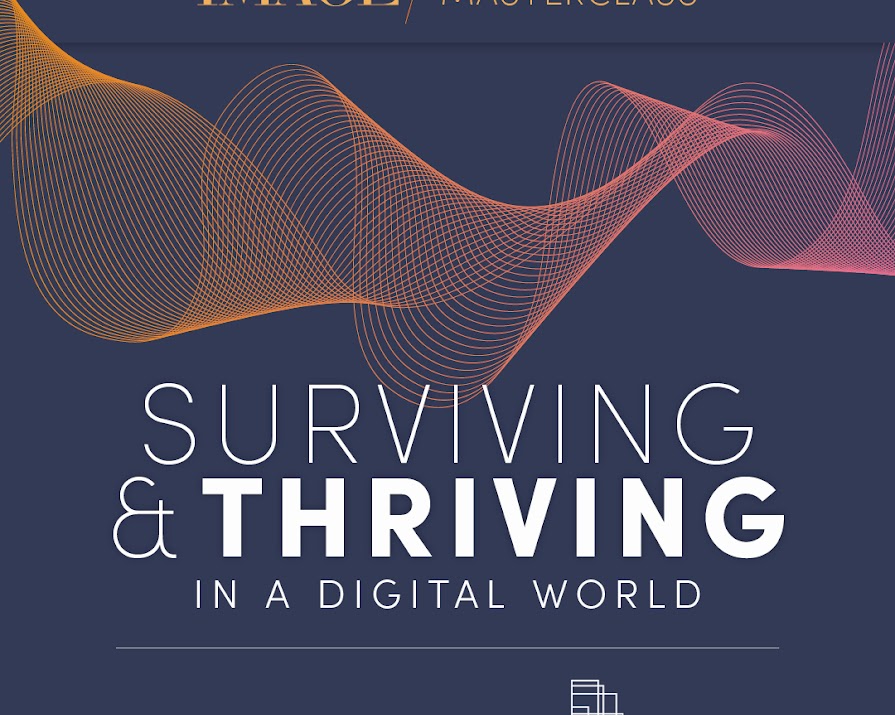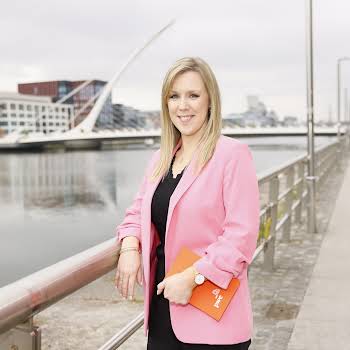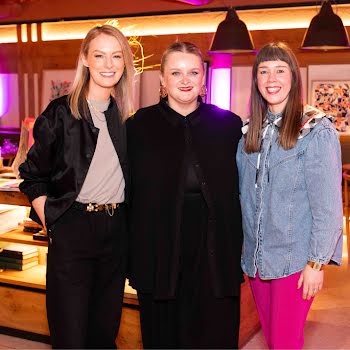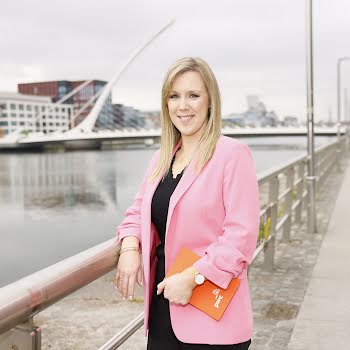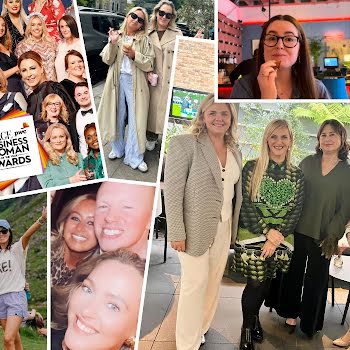
Sponsored
‘Don’t be afraid of failure’: We asked Irish industry leader Dr Patricia Scanlon how to build a business in lockdown
Sponsored By

By IMAGE
26th Feb 2021
26th Feb 2021
Sponsored By

Founder and CEO of SoapBox Labs Dr Patricia Scanlon shares how she built her business from the ground up and thrived through lockdown.
This past year has been a whirlwind for businesses across the world, yet Dr Patricia Scanlon, founder and CEO of SoapBox Labs, has continued to keep her company thriving.
Recently named one of Forbes magazine’s “top 50 women in tech”, the Irish businesswoman holds a PhD in speech recognition as well as over 20 years of experience in the industry, working at Bell Labs and IBM along the way. Now, SoapBox Labs is the world’s leading provider of proprietary voice technology for children.
We asked Dr Scanlon to speak at our IMAGE Mentoring Masterclass ‘Surviving & Thriving in a Digital World’ in partnership with PwC, sharing her experiences, learnings and key strategies she’s found to be the most successful throughout her career.
In conversation with IMAGE Contributing Editor Melanie Morris, she opens up about her own journey to success, while giving valuable tips and insights along the way.
What encouraged you to start your own business?
“At Bell Labs they were always running great competitions, wanting people to propose new research and I loved that. After a couple of years, I realised that I wanted to be one of the decision makers, choosing what projects would go ahead and get funding. This feeling grew in me, and I saw a gap in the market and wanted to go after it.
“I was working on immersive communication for adults, and I was watching my daughter interacting with educational apps that said she was doing really well when, in reality, she wasn’t actually progressing. I realised they weren’t actually teaching her. As an adult, if you’re sitting beside your child you’re listening as they read out, correcting, prompting and encouraging. And these apps were trying to teach kids English language learning and reading, but they weren’t listening. That was my lightbulb moment.”
Was it a scary experience or did you have full confidence?
“I was back and forth; it wasn’t easy. You can’t be 100 per cent sure it’s the right idea. You’re leaving behind a well paid job to step into the unknown. My whole identity was being a technical engineering researcher and to step into the entrepreneurial world meant I had to step away from technology a bit. That’s hard because when you step away from your career, you’re stepping away from your identity somewhat and you might fail.”
Was there a particular moment when you thought “this is working”?
“When I handed in my resignation there was immediate relief, but that moment of ‘this is for sure working’ didn’t come for a while. You’re always wondering that.”
What gave you the confidence to keep charging on against the Goliaths in tech?
“When I was pitching, I explained that we were going to do something that the big tech guys weren’t paying attention to. I knew I had the right background, and I knew the multinationals weren’t going to be able to move as quickly as us. We also approached education first because that had the biggest need.
“Don’t try and do everything, take a piece of the pie that you can handle. To get investors on board, you have to think of something that can be massive, but do something tangible first, so you can show your progress and capability.”
In the early days, what were your biggest challenges?
“In the early days, I thought once we got through the first round of funding I could get back to my other job, but funding preoccupies a huge amount of time in any startup. That was the most challenging. In Ireland, we didn’t have Alexa in home until 2017/2018, so people didn’t have a lot of experience in speech recognition and it was hard to convince people that we had a valid business proposal.”

What is the reality of the funding process?
“I started with a list of 80 people that I narrowed down a few times. A lot of investors won’t say yes or no (it’s called a slow no), so it was a lot of perseverance in trying to find the right people that really believed in you. In the early days, angel investors are quite appropriate but because we were deep tech, we wouldn’t have customers immediately. We had some people on board but not enough, so I went back to my longlist and updated them on our six month progress, which allowed us to open up the conversation to more people.
“So by the time we actually closed our first round, we ended up getting it oversubscribed. Often when people see other people jumping, they get on board. It’s like selling a house. Once you get the bidding process going, everyone gets excited. You want to create that buzz about the company.”
Any tips for someone trying to get funding for their business?
1. Use your contacts.
“Reach out to your professional and personal contacts. (Don’t annoy people too much though!) Most start with the ‘friend and family round’, which is great for people who have a network of those who can afford it. If you don’t, maybe your professional network could. Try and get 10 or 20 people to put in €5,000 each.”
2. Utilise your resources.
“If you get the first €50,000, it lends itself to other people putting in money and then Enterprise Ireland will come in. Be inventive if you can, and go to your local enterprise office. They do match funding and that can be a great step to get started.”
As a woman in a man’s world, tell us about how you network to get your name and story out there.
“At first, it was all about turning up to events, so people know who you are. In investments, people like a warm intro, which isn’t always fair because it excludes a lot of people who don’t know how to network. There’s a lot of institutes doing virtual events now that you can get in touch with.
“At this stage in the company, our networking strategy has changed. We do a lot of panels and talks in the US and focus on communications through social media (e.g. following your client’s accounts and engaging with them). You can write intelligent blogs about stuff people in your area might be interested in too. Try to tell your story in lots of different ways because it will help investors and clients know who you are.”
Any tips on rebuilding (or building) a business while still in lockdown?
“It is a time to innovate. See if you can you find something that will make people’s lives easier ( this may have become apparent to you in lockdown). You will get people listening if you’re solving problems that have impacted their lives. To get funding quicker, try and find people to work with that can help you do that in your own time.
“Don’t think someone else will do it. Draw on your own unique experiences. Get out there and chat with people in the industry. Ask for a virtual coffee with someone that can offer advice. Don’t be afraid of failure. It’s not the worst thing to happen to you. Be okay with knowing that it might not work out before you try it. “
If you missed our IMAGE Mentoring Masterclass ‘Surviving & Thriving in a Digital World’ in partnership with PwC, you can watch it on demand here.











